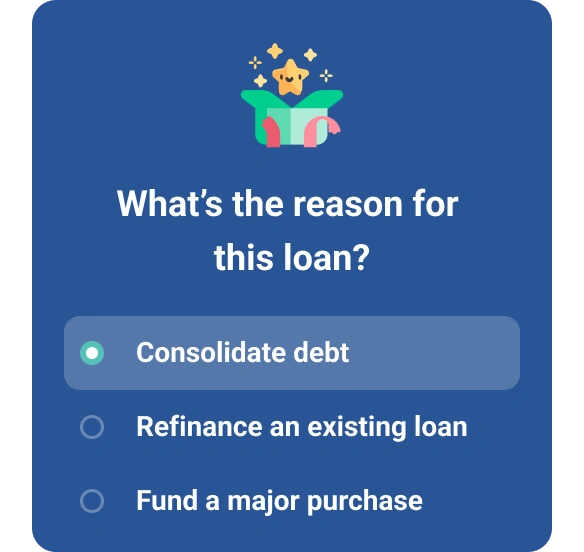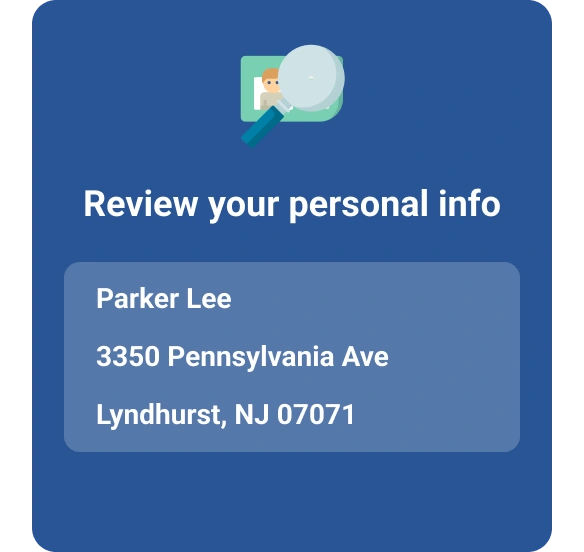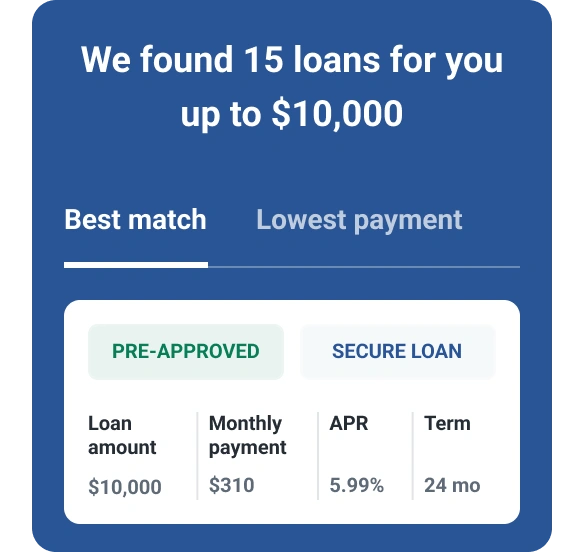Can You Pay Off a Personal Loan Early?
You can pay off a personal loan early, but it may not be your best option. Before you close the books on your personal loan, learn more about the pros, cons, alternatives and credit consequences. Here's how to decide whether paying off your personal loan is the right move for you.
Can You Pay Off a Personal Loan Early?
Yes, you can pay off a personal loan early by making bigger (or more frequent) monthly payments, making a final lump-sum payment or refinancing.
Before you do, however, you may want to check your loan documents or contact your lender. Some personal loans charge prepayment penalties that can reduce the amount of money you'll save by prepaying your loan. Also weigh the pros and cons of paying a personal loan early to make sure you're using your money in the most effective way.
Pros and Cons of Paying Off a Personal Loan Early
Paying off a personal loan has many benefits, including eliminating debt, reducing your monthly payments and potentially saving money on interest charges. But there are also cons to consider. Here's a quick breakdown of the arguments for and against.
Pros
-
Reduce your debt: Paying off your personal loan means fewer loans to manage and less debt overall.
-
Save money on interest: Paying your loan off early can mean paying less in interest over the life of your loan.
-
Lower your interest rate: If you're paying a high interest rate on a personal loan for bad credit, paying off or refinancing your loan at a lower interest rate can save you money in the long term.
-
Improve your debt-to-income ratio: Eliminating your personal loan (and its monthly debt payment) will improve your debt-to-income ratio (DTI), one of the factors lenders look at when considering you for a new loan or credit. With less money going toward debt payments, you'll have more income available for a new loan.
Cons
-
Prepayment penalties may apply: Some personal loans charge prepayment penalties when you pay your loan off early. These might be flat fees or may be calculated as a percentage of your loan balance. Either way, prepayment penalties cut into your net savings and may even wipe out the benefit of prepaying your loan. Check your loan documents or call your lender for more information.
-
Might be better options: Before paying off your personal loan, think about whether you might be better off building up your savings or paying down high-interest credit card debt. Maintaining a strong emergency fund is key to financial resilience. Paying down high-interest credit card debt could save you more money on interest charges—and may help your credit score by reducing your credit utilization.
How Paying Off a Personal Loan Early Can Affect Your Credit Score
The credit consequences of paying a loan off are surprisingly mixed. Although a positive payment history and paying your loan off in full both have a positive effect on your credit overall, paying off a personal loan can also cause a minor temporary dip in your credit score. Here's why:
- Credit mix: Part of your credit score depends on the mix of open credit account types you have. Ideally, you want a mix of installment loans (like personal or auto loans) and revolving credit (typically credit cards). When you pay off an installment loan, your credit report shows the account as closed. If a personal loan was your only installment loan, your score might reflect less diversity once your account is closed.
- Length of credit history: If your personal loan was one of your longest-standing accounts, closing it could eventually lower your credit score. Credit scoring models use longevity as a factor in calculating your credit score, including the average age of your accounts, the age of your oldest account and how long it's been since you opened a new account. In general, a longer credit history is better for your credit scores.
- Payment history: Although your on-time payment history stays on your credit report for up to 10 years after your loan is paid, your personal loan's positive history may have slightly less impact once your account is closed. Active accounts have a greater impact on credit than closed accounts.
Negative credit effects shouldn't totally discourage you from paying your loan off early. In general, these impacts are minor. With time—and good credit habits—your score should recover. On the other hand, if you're about to apply for a mortgage or car loan and need the highest possible credit score to qualify and get the best annual percentage rate (APR), you may want to pay off your personal loan after your new loan has closed.
Also, if you have both a personal loan and credit card debt, you may want to pay your credit cards off first. Unlike an installment loan, a credit card account stays open even after it's paid, so you avoid some of the negatives outlined above. In addition, reducing your revolving credit card debt may improve your credit utilization, raising your credit score even further.
Learn more: What Credit Score Is Needed for a Personal Loan?
How to Pay Off a Personal Loan Early
Make room in your monthly budget, utilize extra cash or work out a refinancing plan to pay off your personal loan faster. Here are three basic ways to get the job done:
- Make more or bigger payments. Whether you add extra money to your regular monthly payments or add more payments to every month, upping your payments is one way to accelerate your loan payoff. If you can't make bigger payments monthly, add what you can to a single payment whenever you can: Every little bit helps.
- Pay your loan off in a lump sum. If you got a bonus at work, received an inheritance or won the lottery, you can use your windfall to pay off your entire loan balance. Before you do, check with your lender (or loan documents) to find out about prepayment penalties.
- Refinance your loan. You may be able to refinance to a lower APR if your current loan carries a high interest rate. You can also consolidate your debts by taking out a home equity loan or doing a cash-out refinance.
Tip: Different personal loans treat prepayments and extra payments differently. Before you prepay, ask your lender about penalties and how extra payments are applied. If possible, you want extra money to go directly to principal so you can pay your loan off faster.
The Bottom Line
Paying your personal loan off early is a good way to eliminate a monthly payment, improve your debt-to-income ratio and reduce your overall debt. But proceed with caution. Make sure you understand whether you'll face prepayment penalties and, if so, what these will cost you. Also consider the immediate and longer-term effects to your credit.
If you're planning to pay off your personal loan early—or pay down any of your existing debt—you may want to sign up for free credit monitoring with Experian. You'll receive alerts whenever there are changes to your credit file, so you'll know how your debt-reduction efforts are affecting your credit and where your credit stands at any given time.
Need a personal loan?
Whether you're looking to eliminate debt or access cash fast, compare personal loan offers matched to your credit profile.
Start now for freeAbout the author
Gayle Sato writes about financial services and personal financial wellness, with a special focus on how digital transformation is changing our relationship with money. As a business and health writer for more than two decades, she has covered the shift from traditional money management to a world of instant, invisible payments and on-the-fly mobile security apps.
Read more from Gayle

